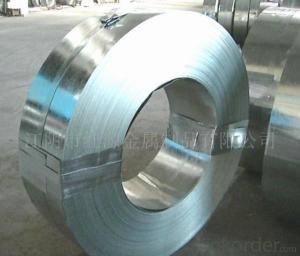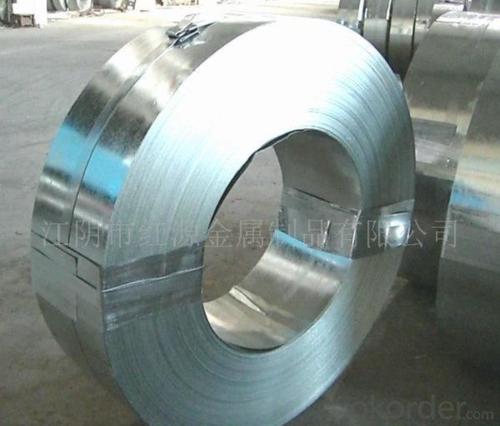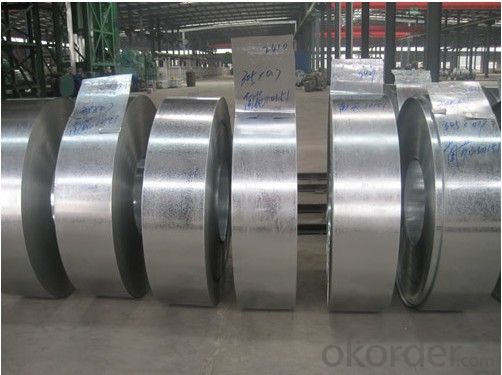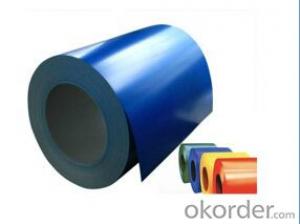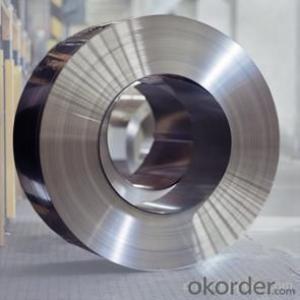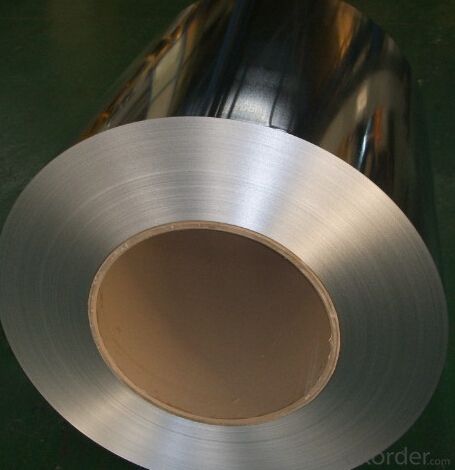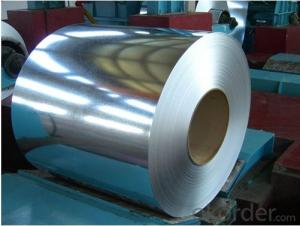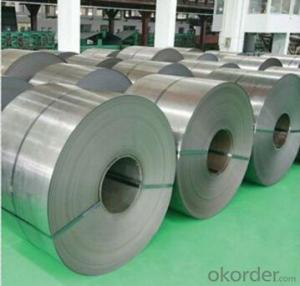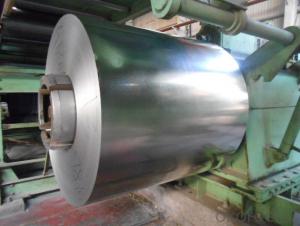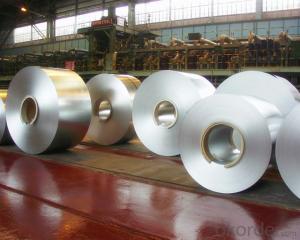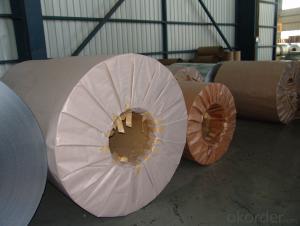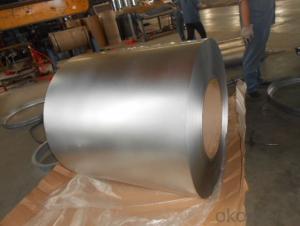Best Supplier Galvanized Steel Strip/GI Strips
- Loading Port:
- Tianjin
- Payment Terms:
- TT OR LC
- Min Order Qty:
- 20 m.t.
- Supply Capability:
- 10000 m.t./month
OKorder Service Pledge
OKorder Financial Service
You Might Also Like
1.Structure of Hot-Dip Galvanized Steel Strip Description:
Hot-dip galvanized steel coils are available with a pure zinc coating through the hot-dip galvanizing process. It offers the economy, strength and formability of steel combined with the corrosion resistance of zinc. The hot-dip process is the process by which steel gets coated in layers of zinc to protect against rust.
2.Main Features of the Hot-Dip Galvanized Steel Strip:
• Workability, durability
• Excellent anticorrosive property
3. Hot-Dip Galvanized Steel Strips Images
4.Hot-Dip Galvanized Steel Sheet Specification
Product name | Hot dipped galvanized steel coil/strip |
Grade | DX51D SGCC SGCH |
Width | 8-600mm |
Thickness | 0.15-5mm |
Zinc coating | 40-180 g/m2 |
Quality | Full hard or soft |
Size | 0.15-0.6*8-600mm*C |
Coil ID | 508mm |
Coil weight | 1-3MT |
Surface structure | Regular spangle, minimized spangle,zero spangle |
Surface treatment | Chromium acid passivation |
Certificate | ISO9001:2000 Quality Certificate System |
Exported countries | Southeast Asia,Africa,the European Community and the Middle East. |
Package | mills standard export packing or according to the customers requirement |
5.FAQ of Hot-Dip Galvanized Steel Strip
1. How about your company?
We’re state-owned company, controlled by central government. We also TOP 500. For galvanized steel sheet products, we have regular delivery to all over world every month.
- Q: Hi, I would like to know if steel is an important material in desalination plants. If it is, could you specify what type of steel is used (i.e. flat steel products, long steel products, etc). Thanks.
- no u idiot
- Q: I would like to know if steel is basically a very dense crystal, or if it is a different atomic structure
- Steel is crystalline. In general the bigger the crystals the better.
- Q: What are the main factors that affect the formability of steel coils?
- The main factors that affect the formability of steel coils are the composition and microstructure of the steel, the thickness and width of the coil, the temperature during forming, and the mechanical properties of the steel.
- Q: What are the main applications of steel coils?
- The main applications of steel coils include manufacturing of automobiles, construction materials, appliances, machinery, and various industrial sectors. They are also used in the production of pipes, tubes, roofing, and packaging materials.
- Q: My company want to welding stainless steel, do not know to use what welding machine?
- There are many ways in welding stainless steel, such as coating manual welding,argon arc welding, pulsed argon arc welding, MIG, pulsed MIG, double pulsed MIG. Different welding ways own their merits and faults and adaptive working conditions. It is recommended to choose pulsed MIG, its molding very good and efficiency high, so it is mainstream application for stainless steel welding. Now many digital welding machines can supply these welding methods at the same time. And their welding effects is far better than traditional machines. Among them, FRONIUS’s TPS series and Nebula series are representitive products.
- Q: How are steel coils used in the production of steel bolts?
- Steel coils are used in the production of steel bolts by being uncoiled and then fed into a machine that cuts and forms the bolts. The coils provide a continuous supply of high-quality steel, ensuring consistent and precise production of bolts.
- Q: How are steel coils inspected for surface finish variations?
- Steel coils are inspected for surface finish variations using visual examination, mechanical methods such as gauges and calipers, and non-destructive testing techniques like magnetic particle inspection or ultrasonic testing.
- Q: In the warehouse management system of steel coil
- Warehouse is an important component of enterprise material supply system. It is also the tache of enterprise material circulation and storage, and it also undertakes many functions of material management. Its main tasks are to keep the stock well, to be accurate, to be of good quality, to ensure safety, to prompt the people, to produce, to be considerate, to reduce costs, and to speed up capital turnover.
- Q: How are steel coils used in the manufacturing of appliances?
- Steel coils are used in the manufacturing of appliances as a primary raw material for constructing the outer body and internal components, such as frames, panels, and structural supports. The steel coils are processed and transformed into various shapes and sizes, ensuring the durability and strength required for appliances.
- Q: We all know that when we drop a small steel ball (size 3mm diameter; weight 1.10 grams) and a paper (size 11.7 inches length and 8.3 inches breadth; weight 4.5 grams) from a height. The steel ball will win the race to the ground due to its aerodynamic structure.Now imagine the same steel ball with the same weight converted to the structure similar that of paper. What will be the result? Which object will fall first; steel sheet or paper?
- In okorder /... 11.7x8.3 inch paper 97.11 square inches 0.062651488 sq meters at 4.5gm is a non-standard 19 pound bond ledger paper, but that is OK, because at least it is in range. 38 gauge steel sheets are about the thinnest that hold their structure 0.00625 thick 1221 g/m? or, at 11.7x8.3 76.5grams So, with this data at hand we can better visualize the situation. Paper of 0.00625 thick in the size shown is 35# paper 131.68 g/m? 8.25grams Steel is higher in density than paper, so you cannot get the same size and air flow without it being lighter in weight than the steel and the air resistance would be lower for the heavier item, so steel of the same shape and thickness as paper falls faster. Suppose you want paper heavier than steel for the same area, then the thickness increases. Will a steel sheet 0.00625 thick and 11.7x8.3 inch size 76.5gm fall faster or slower than a 9 or 10 times thicker paper sheet? If it was able to hold flat in each type the thicker paper should get more backflow behind it aerodynamically and fall faster than an equal weight thinner steel sheet as my guess, but I don't have those numbers. The steel will always be heavier than the paper for the same exact shape and thickness by about 9x. My answer here is difficult, but the question has some flaws to think about.
Send your message to us
Best Supplier Galvanized Steel Strip/GI Strips
- Loading Port:
- Tianjin
- Payment Terms:
- TT OR LC
- Min Order Qty:
- 20 m.t.
- Supply Capability:
- 10000 m.t./month
OKorder Service Pledge
OKorder Financial Service
Similar products
Hot products
Hot Searches
Related keywords
